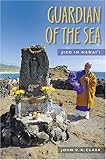Guardian of the Sea : Jizo in Hawaii / John R. K. Clark.
Material type: TextPublisher: Honolulu : University of Hawaii Press, [2007]Copyright date: ©2007Description: 1 online resource (184 p.) : 60 illusContent type:
TextPublisher: Honolulu : University of Hawaii Press, [2007]Copyright date: ©2007Description: 1 online resource (184 p.) : 60 illusContent type: - 9780824831585
- 9780824860066
- 796
- online - DeGruyter
- Issued also in print.
| Item type | Current library | Call number | URL | Status | Notes | Barcode | |
|---|---|---|---|---|---|---|---|
 eBook
eBook
|
Biblioteca "Angelicum" Pont. Univ. S.Tommaso d'Aquino Nuvola online | online - DeGruyter (Browse shelf(Opens below)) | Online access | Not for loan (Accesso limitato) | Accesso per gli utenti autorizzati / Access for authorized users | (dgr)9780824860066 |
Frontmatter -- Contents -- Acknowledgments -- Introduction -- Prologue -- Chapter One. Casting for Ulua -- Chapter Two. Stores, Clubs, and Tournaments -- Chapter Three. Jizo the Protector -- Chapter Four. Jizo on the North Shore -- Chapter Five. Warning Signs -- Chapter Six. Jizo on the South Shore -- Chapter Seven. Pilgrimages -- Chapter Eight. Drownings in Hawai'i -- Epilogue -- Timeline of Events -- References -- Index
restricted access online access with authorization star
http://purl.org/coar/access_right/c_16ec
Jizo, one of the most beloved Buddhist deities in Japan, is known primarily as the guardian of children and travelers. In coastal areas, fishermen and swimmers also look to him for protection. Soon after their arrival in the late 1800s, issei (first-generation Japanese) shoreline fishermen began casting for ulua on Hawai'i's treacherous sea cliffs, where they risked being swept off the rocky ledges. In response to numerous drownings, Jizo statues were erected near dangerous fishing and swimming sites, including popular Bamboo Ridge, near the Blowhole in Hawai'i Kai; Kawaihapai Bay in Mokule'ia; and Kawailoa Beach in Hale'iwa. Guardian of the Sea tells the story of a compassionate group of men who raised these statues as a service to their communities.Written by an authority on Hawai'i's beaches and water safety, Guardian of the Sea shines a light on a little-known facet of Hawai'i's past. It incorporates valuable firsthand accounts taken from interviews with nisei (second-generation) fishermen and residents and articles from Japanese language newspapers dating as far back as the early 1900s. In addition to background information on Jizo as a guardian deity and historical details on Jizo statues in Hawai'i, the author discusses shorecasting techniques and organizations, which once played a key role in the lives of local Japanese. Although shorecasting today is done more for sport than subsistence, it remains an important ocean activity in the Islands.In examining Jizo and the lives of issei, Guardian of the Sea makes a significant contribution to our understanding of recent Hawai'i history.
Issued also in print.
Mode of access: Internet via World Wide Web.
In English.
Description based on online resource; title from PDF title page (publisher's Web site, viewed 02. Mrz 2022)


